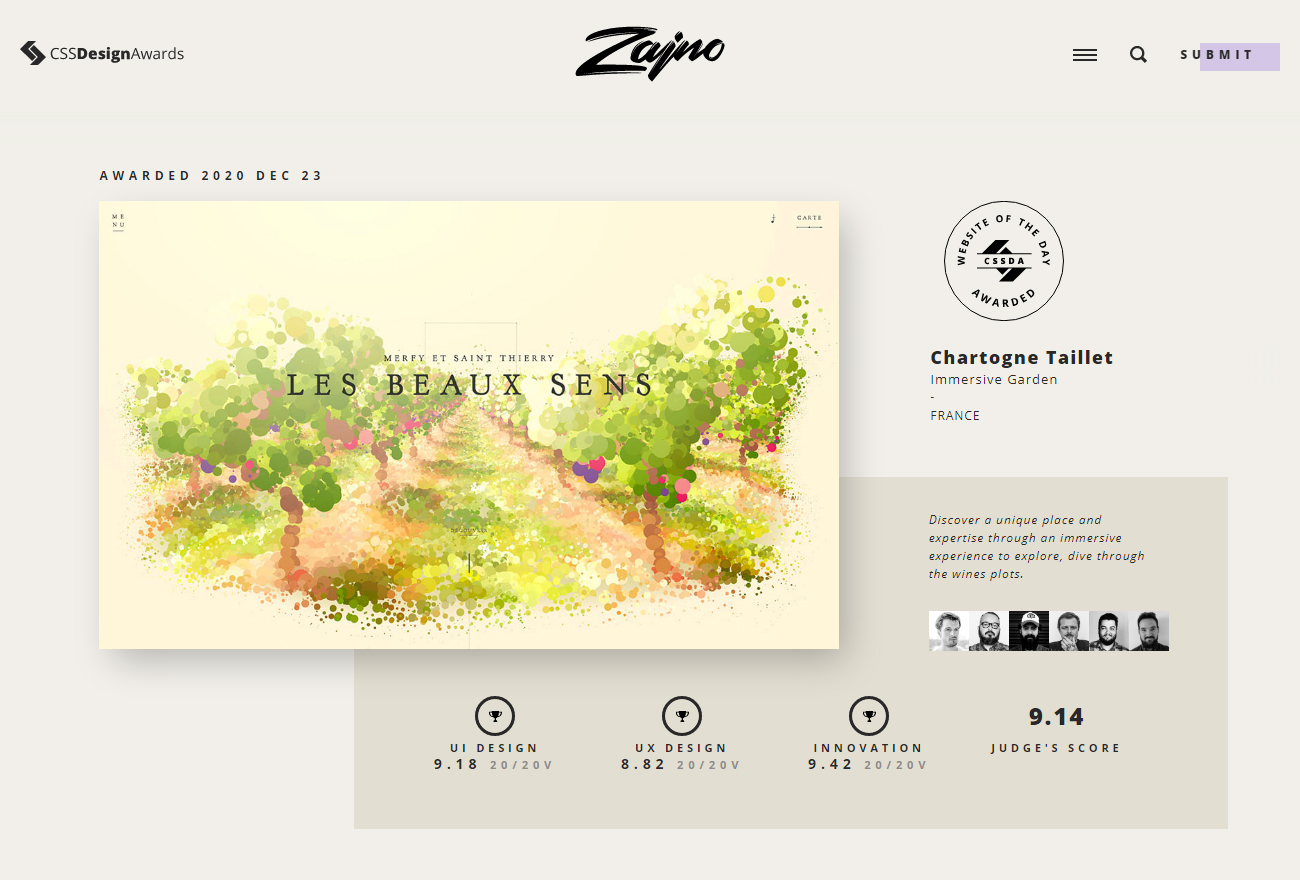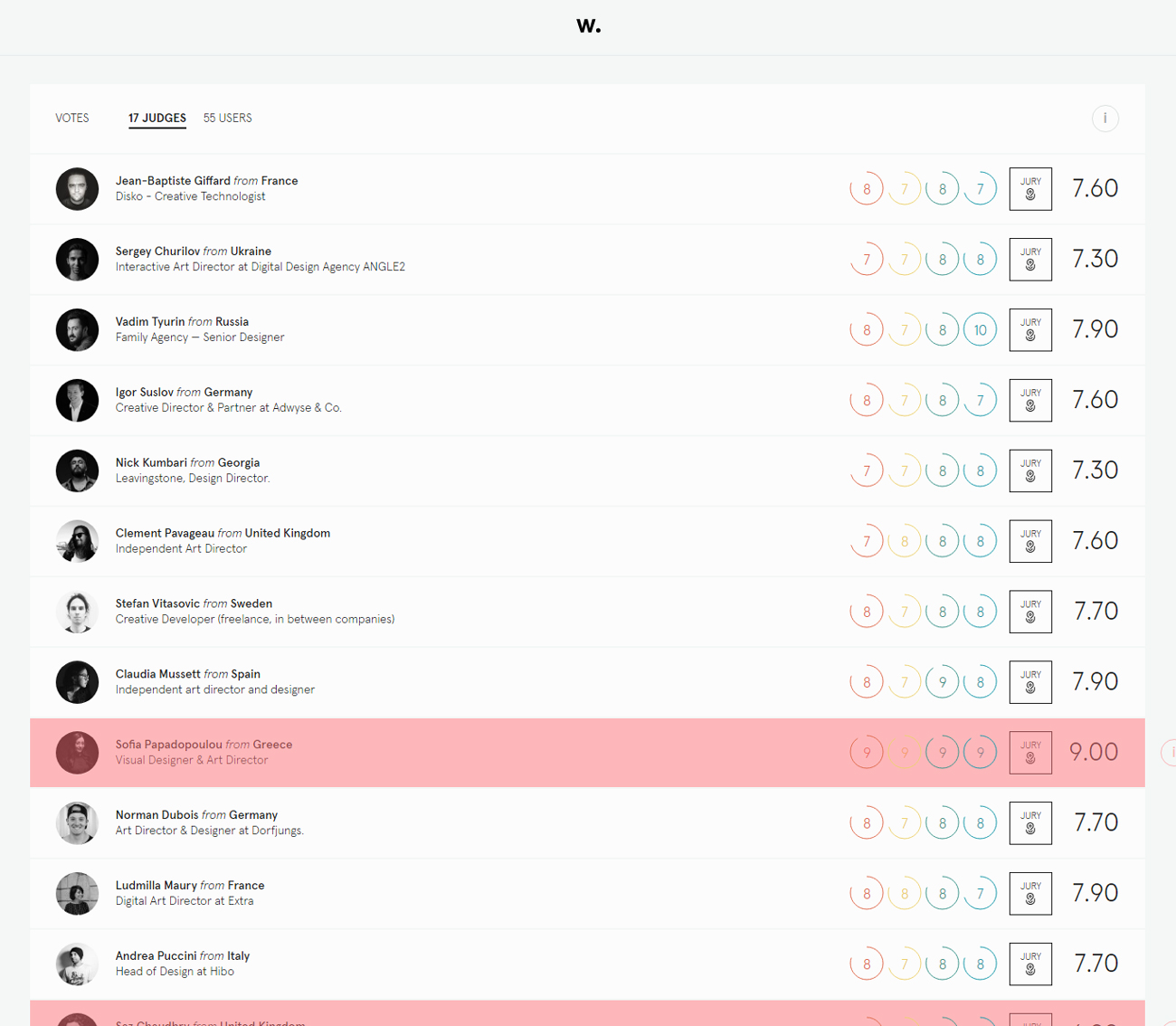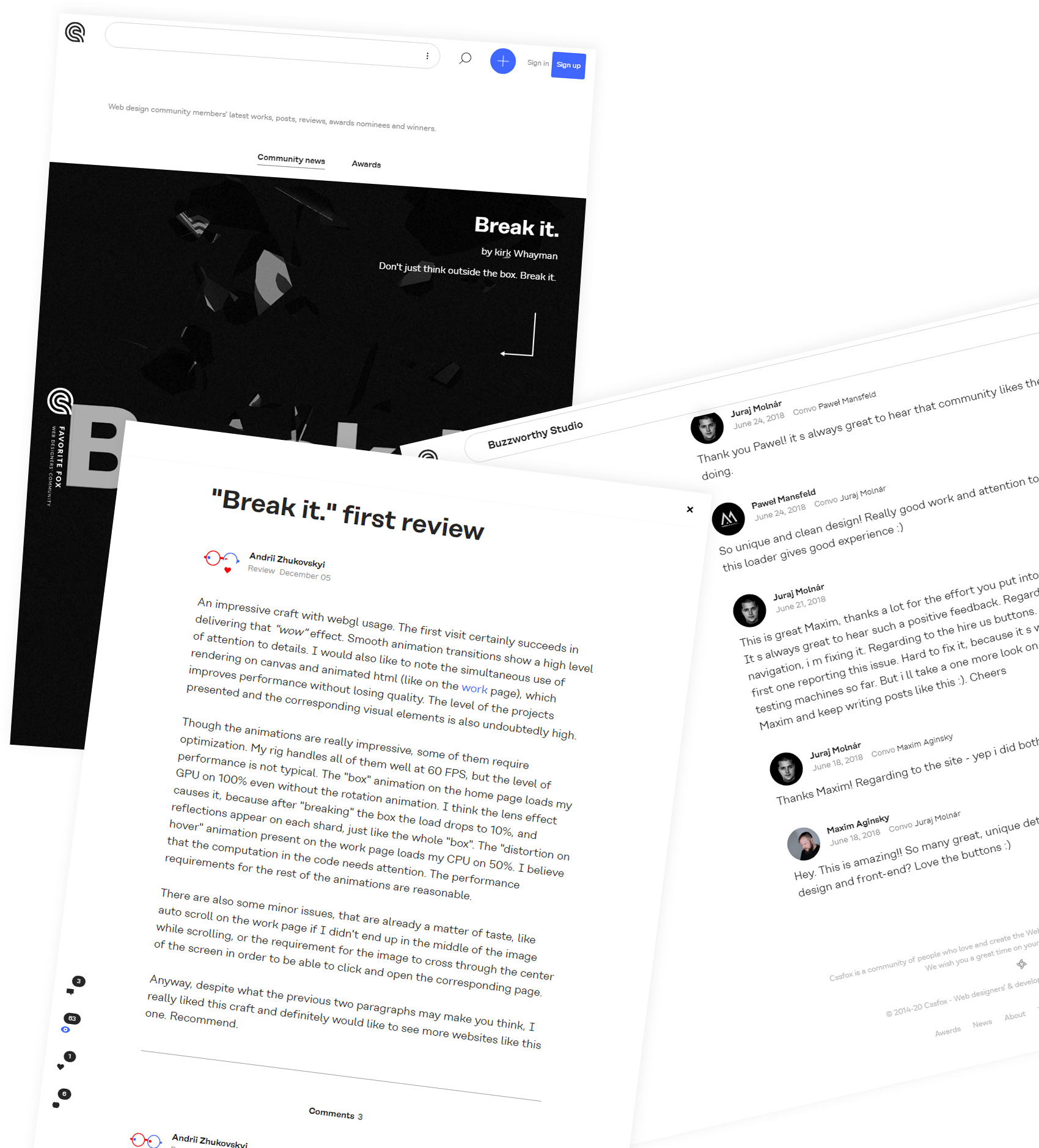Website evaluation in points - what's wrong with that?


Jolian Nomasan
Front-end developer with 9 years of experience. Love working on good designed and user friendly projects.
Jolian Nomasan
When you create something, and you like the resulting work, you want to share it so that others will praise, criticize, be inspired, envy, or simply appreciate your craft. This is quite natural for any kind of creation. But what does a designer, inspired by such an impulse, see in search of a platform that can satisfy his request?
First of all, he is greeted by sites with a similar formula, which has proven to be effective, just not in what he is looking for right now. These are the most user-friendly platforms when you first meet. Calm but stylish design, beautiful images of works, good user activity. And immediately the hand reaches for the coveted registration button. Even the payment for the placement of the work is not particularly disturbing (although sometimes the requested amount is surprising).

Everything looks really solid
But now, you have passed the registration stage and admire your work among others. You can safely count on becoming a Nominee, or even Honorable Mention, almost regardless of the work itself. After all, the platform does not want you to be disappointed in investing your hard-earned money in it.
Then there is the observation of the process. Other users come to your work, rate it. It seems like everything is according to plan, but the emotions are not the same. The cold calculation of the platform formula begins to affect. Let people express their opinion of your work in the form of a score, but questions and doubts immediately arise. For example, I scored so-and-so for the design, while some other sites have a higher score. Does this mean that my site is worse? And what does this number actually mean? What exactly did the person turn his attention to? What do I need to change? Or maybe he/she didn't study the work enough, didn't notice the details?

It is unusual to see the degree of innovation numerically, down to the hundredth
At this moment, understanding of the situation begins to come. You cannot know how others feel when they look at your work. They, in turn, also cannot tell you about it simply. For this is the formula. You are not even sure that all visitors who have left a rating are real people.

And it also happens that the high mark will not be taken into account
But now, as a result of the evaluations, you receive your first award - your work becomes the Website Of The Day. And you understand that there are thousands of such winners. And who is the winner when all are winners?

Who is the winner when all are winners?
Then you notice that there is a Developer Website award for a work that loads your computer to its limit and half of the animation doesn't work when navigating between pages not as the developers intended. Or the Mobile Excellence award for a site written in a framework that made adaptability for the developer. And later, you notice that your craft does not have these awards, when you meticulously checked and "polished" your project so that in terms of performance it is superb and looks great on all devices.
As a result, you understand where the formula of such platforms is most effective. In fact, these are platforms for the paid promotion of websites. Community activity is more important for promoting the work of each participant and the platform as a whole. And even the highest awards, such as the Website of the Month or the Website of the Year, are only needed as another badge in your portfolio.
After this experience, a platform like Cssfox is pleasantly surprising with the real community attention to the work you publish. The attention that you can perceive, be it a simple commentary, or a detailed review from the jury. Maybe the community here is not so large and active. After all, not everyone has time to study the works in detail. And the platform itself is conducive to activities that require more time. But, this approach is centered on the community and everyone who belongs to it, and I think it's worth a lot.

Live communication and detailed project review